Bolts types belong to the family of threaded fasteners, which are combined with threaded nuts when used, and are usually used to connect two or more components. Bolts are divided into different types according to their head shape, strength, finish, and material.
Types of bolts and their uses. All these classifications play a role in the final selection of bolt types for a given application. You must have the knowledge to choose the correct type of bolt for the specific job at hand, because several types of bolts are more effective than others.
Bolts types of head shape
There are various head shapes for bolts and screws. These heads are used to fix the tools used to tighten them.
The most common types of bolt heads include square, hex, and slotted hex washers and caps.
The first bolt head used is a square head. The square head consists of a square notch in the head and a shaft, which prevents rotation when torque is applied. Square heads are still in use today, but hexagon heads have become more common. The hex head is used with a wrench or wrench to provide torque.
There are many other head shapes in use, namely flat, oval, flat, round, button, and truss.
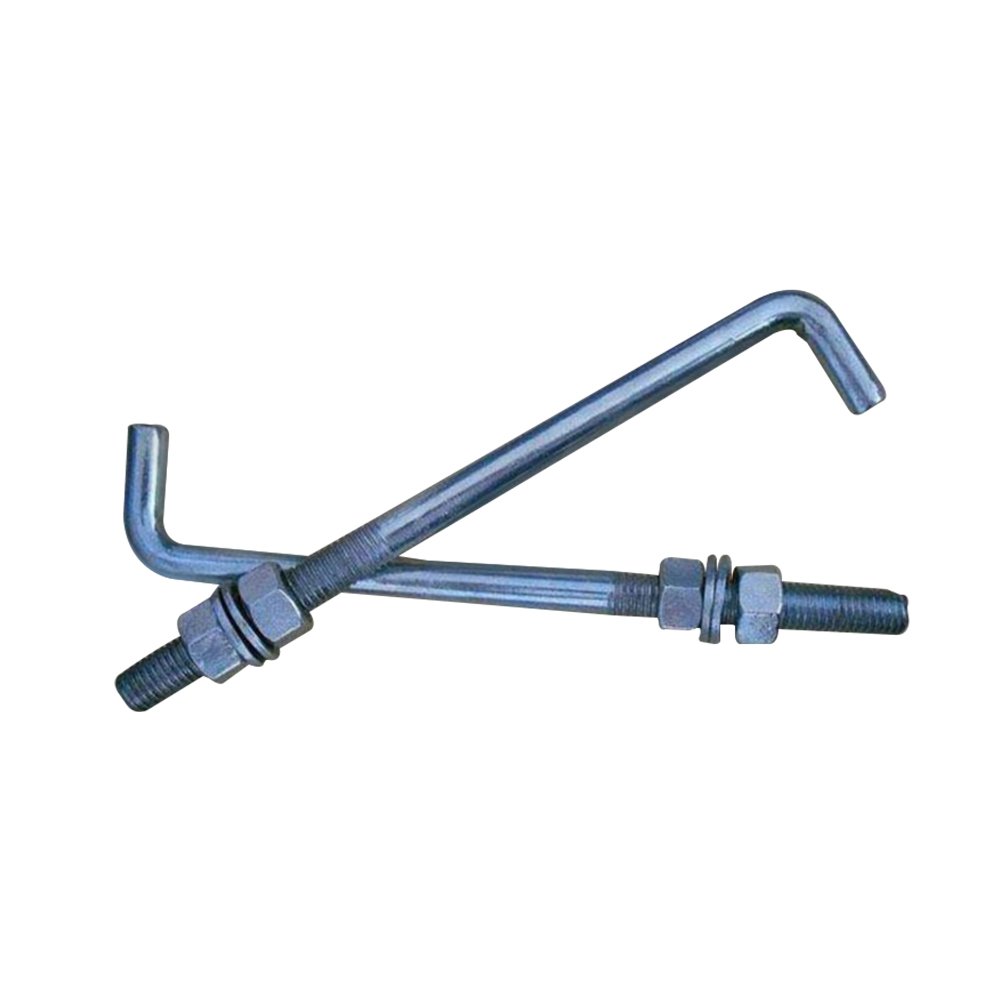

Anchor Bolts
A bolt with a threaded part at one end and an unthreaded L-shaped part at the other end. It usually comes with washers and nuts. Anti-rust.
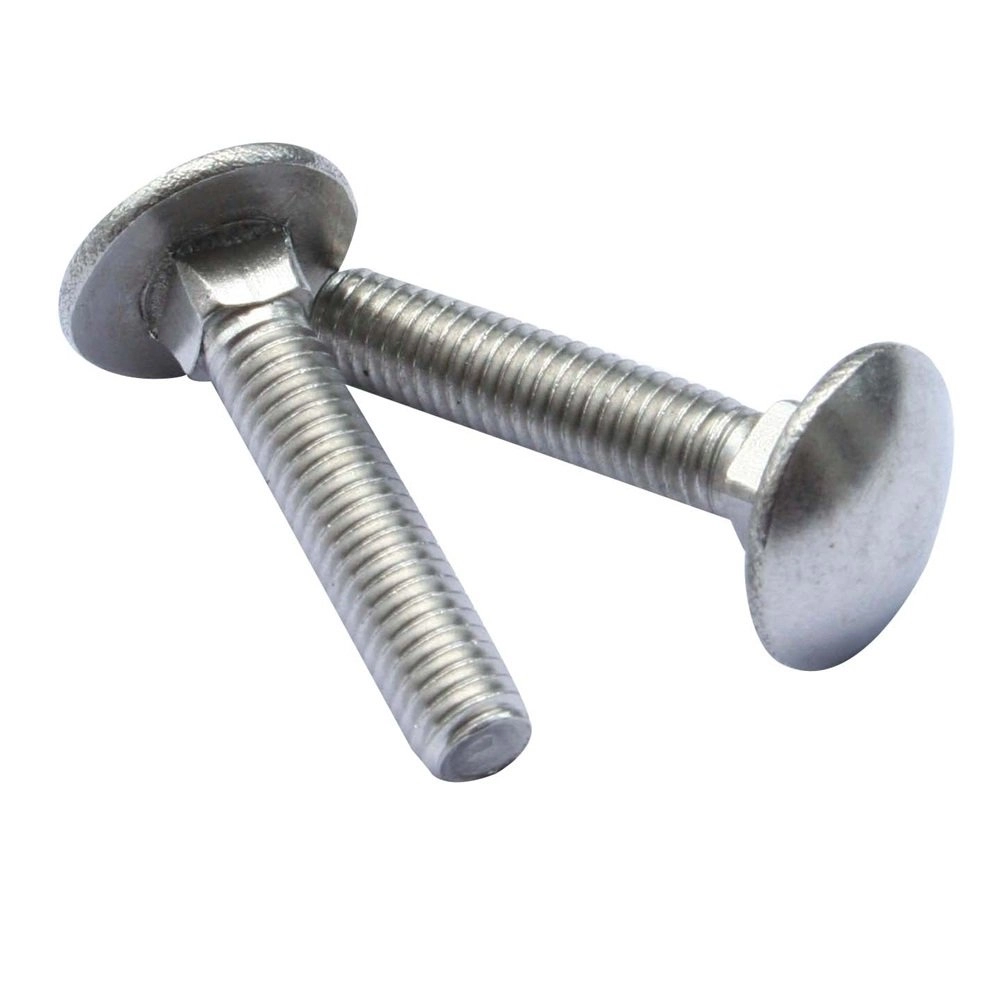

Carriage bolts
Fully threaded bolts have a smooth head with square or grooved grooves to prevent the bolts from turning when tightened.
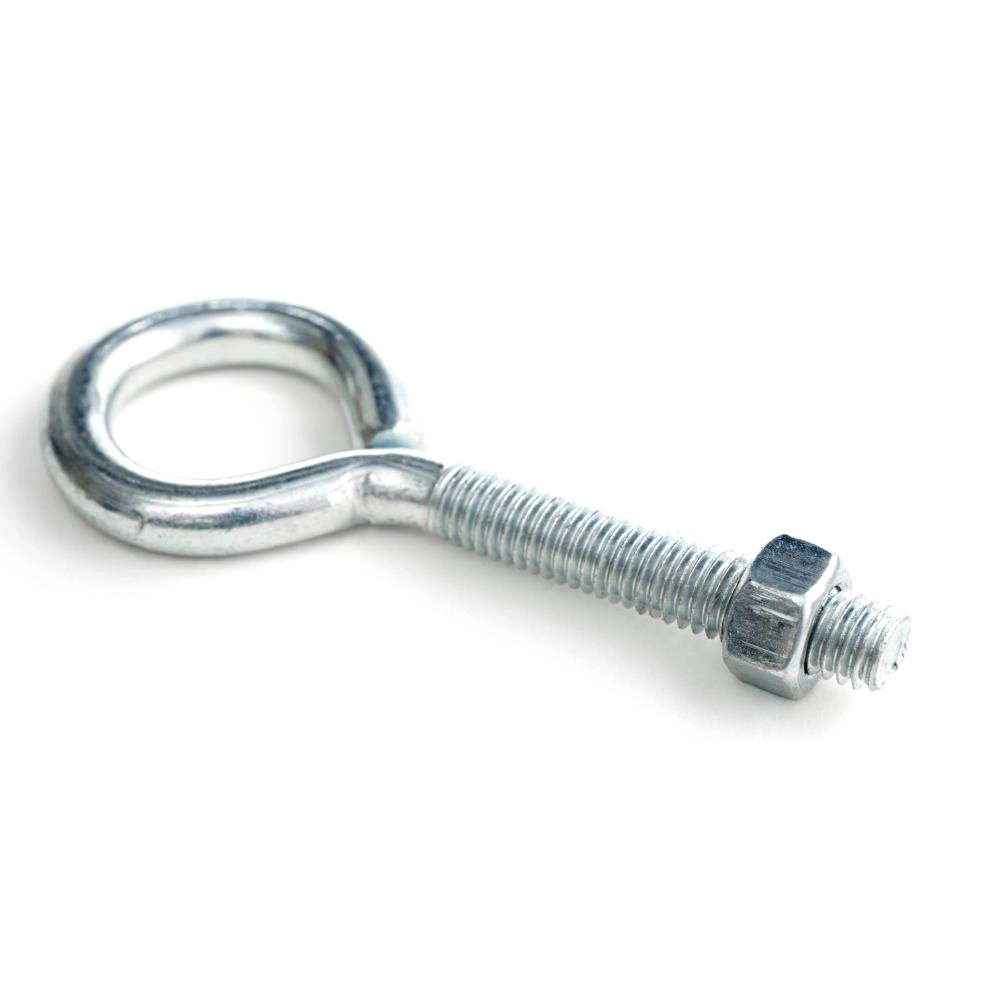

Eye bolts
One end of the rod-shaped fastener is threaded, and the other end is bent into a loop. Hoisting applications, such as cables and ropes in light rigging.
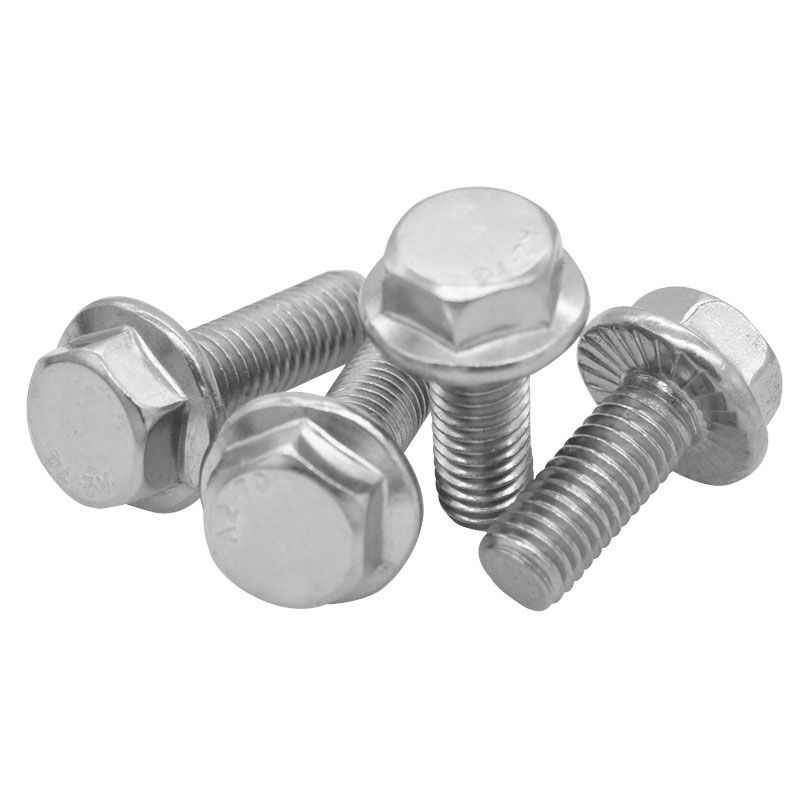

Flange bolts
The washer at the bottom of the hex head. Helps distribute bearing load force. Also called frame bolts. Shelf applications, such as trucks and platform shelves.
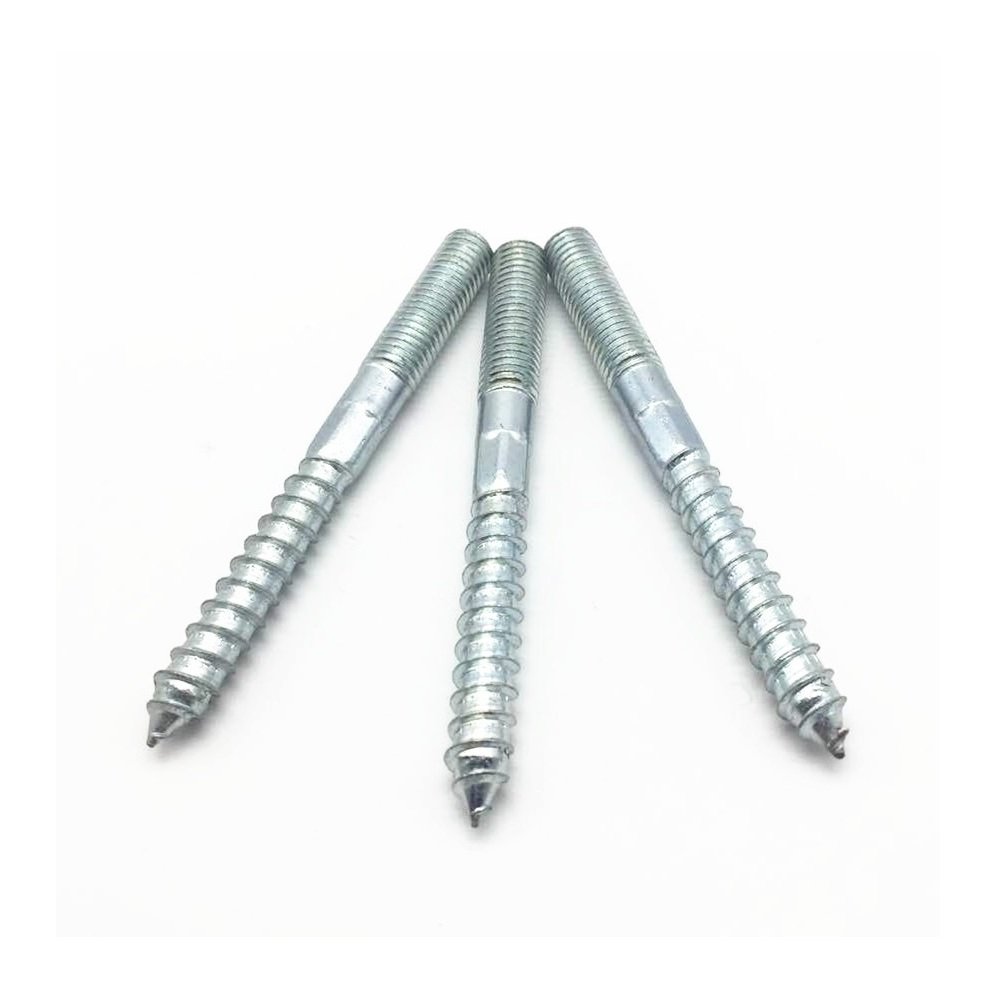

Hanger bolts
It has no bolt heads. Both ends of the bolt are threaded. One end is shaped like a wood screw. Apply and fix metal to wood in the air.
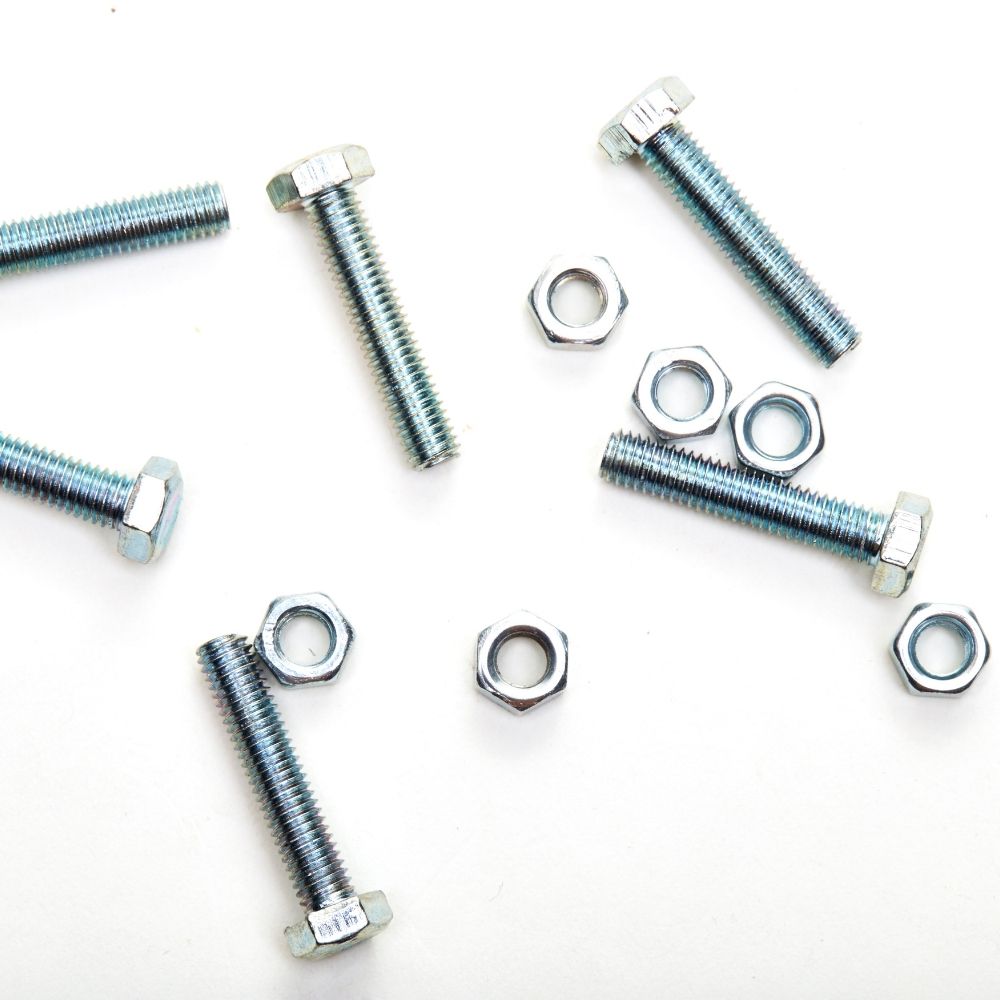

Hex bolts
All or part of the bolts with six-sided head threads. It has a wide range of uses, such as the construction and maintenance of bridges, docks, road elements, and buildings.
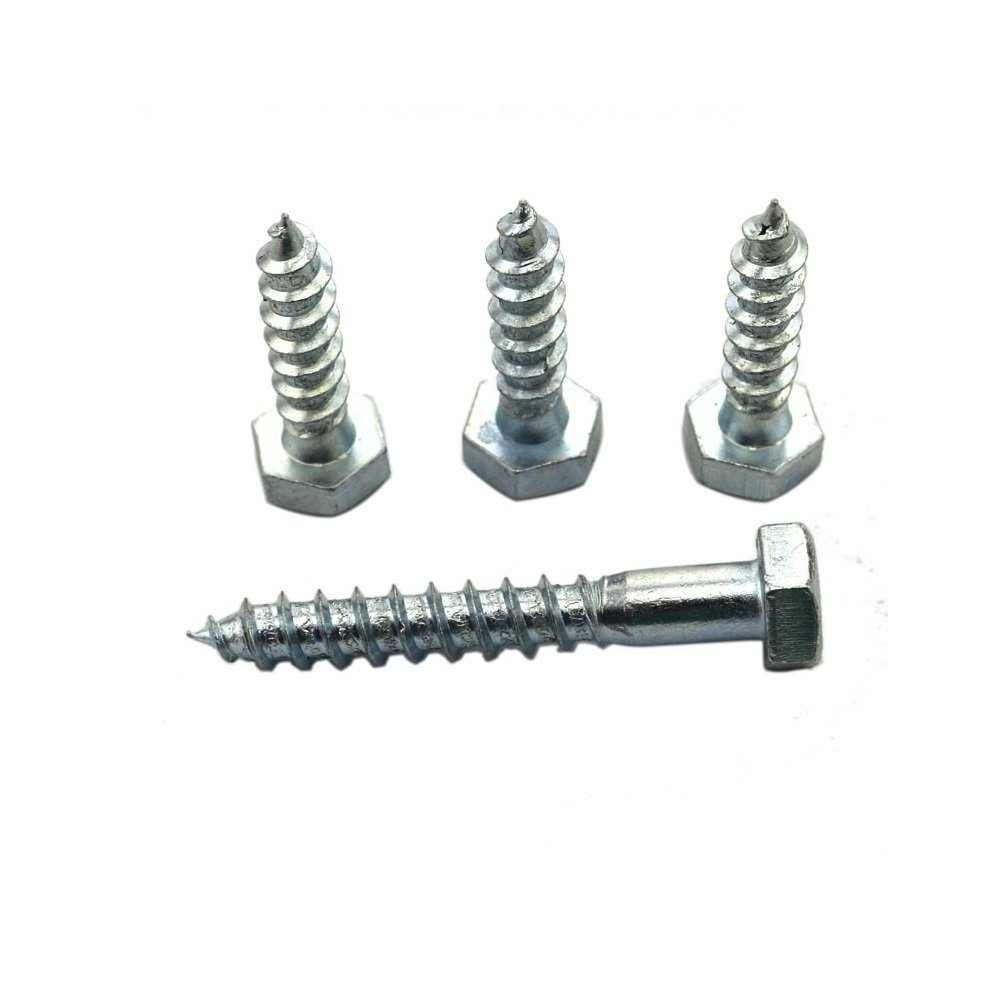

Lag bolts
One of the strongest bras. When it penetrates wood and other soft materials, it produces its own thread. Connect heavy materials that support extreme loads.
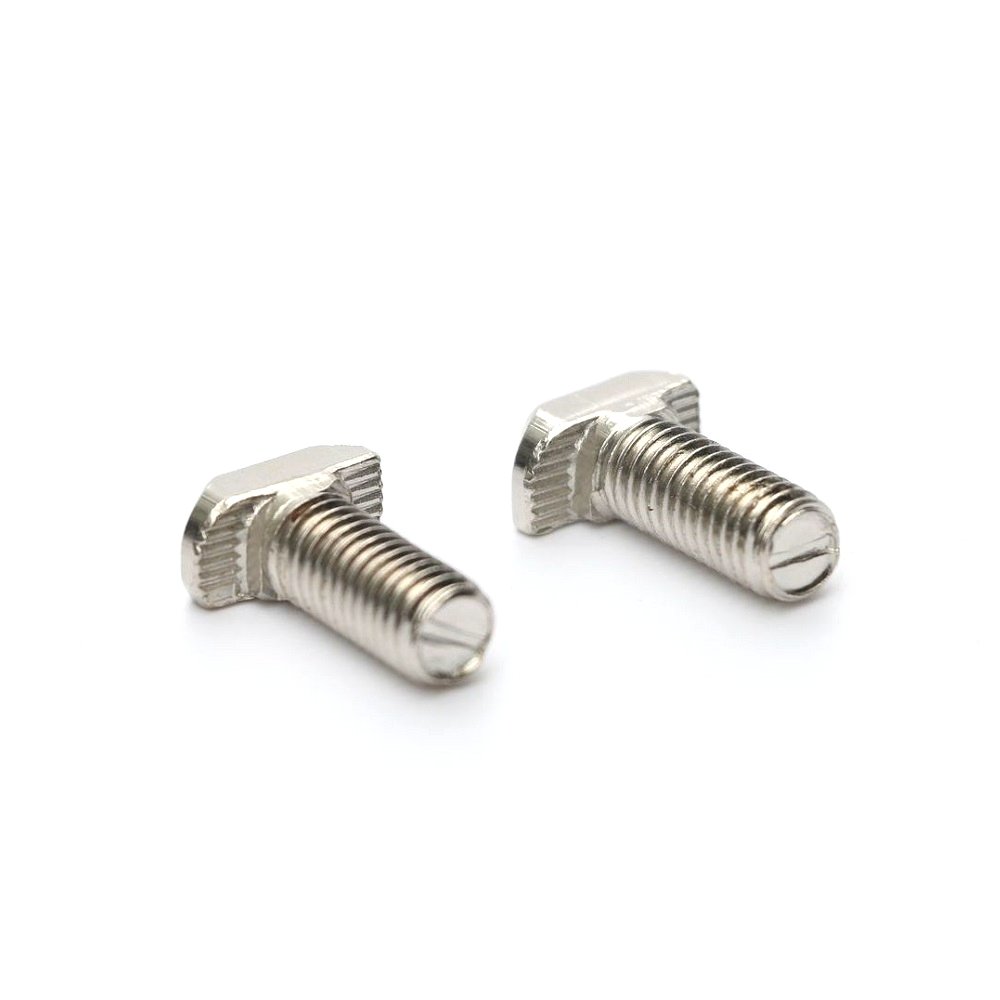

T-bolts
It has a T-shaped head, so it can be held in place with a wrench or easily. Provide a persistent connection. Used in buildings, instruments, furniture, automobiles, etc.
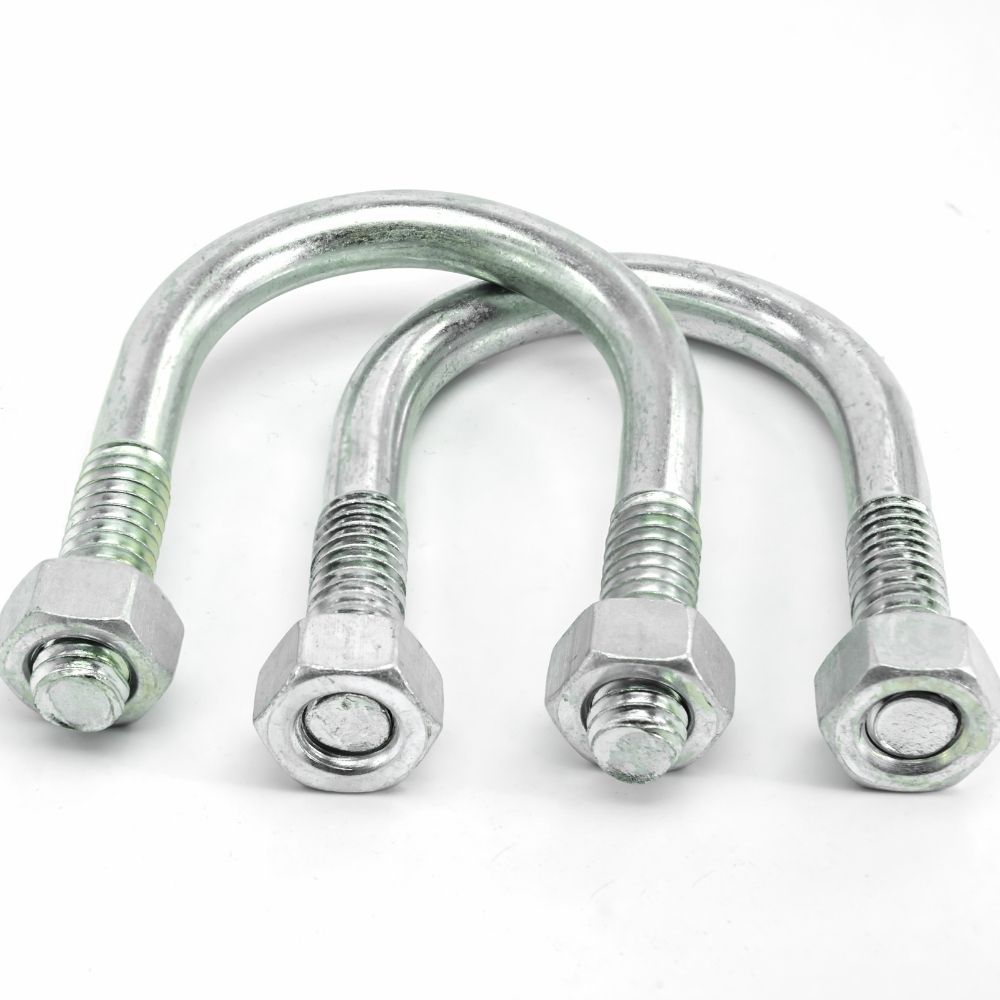

U-bolts
Shaped like the letter U. There are threads on both ends and no threads on the bent part. Mainly used to support pipelines, especially pipelines through which liquid and gas flow.
Bolts types of strength
Regarding the material used to make the bolt and the size used to make the bolt.
The following table shows some typical materials of common bolts and their corresponding marks. The mentioned materials gradually strengthened on the table.
Q195, Q235, 1018 for grade 4.8 bolts
35 Steel, 45 steel for grade 8.8 bolts
The alloy steel with Mn, Cr, Ni, Mo for grade 12.9 bolts.
A2, A4, sus304, sus3316
Bolts types of surface finish
Bolt finishes are described as coatings used on bolt materials. Depending on the type of application required, the quality of the finish can be very high to a minimum.
Anti-corrosion finishes are a common example of very high-quality finishes, while decorative finishes used to color bolts are classified as low-quality finishes. At least, some bolts may not be coated.
There are many types of bolt finishes currently in use, and they are classified as follows:
Plain Bolts types
Uncoated. Also called natural color, natural color, black. If no surface treatment is specified, the bolt will automatically be interpreted as uncoated. plain finish bolts do not provide corrosion resistance.
Zinc Plated bolts types
Thicker coatings provide greater corrosion resistance and vice versa. It is widely used because of its low price. The coating is smooth and the finish on the screws is good. If required, these finishes are also easy to handle and provide a paintable surface.
Yellow plated Bolts types
Zinc chrome yellow is also called zinc yellow, z/chr, or zinc chrome yellow. This mixture is heavier than transparent chromate and therefore has better corrosion resistance.
Hot-dip galvanizing (HDG)
The process of immersing bolts in molten zinc. When immersed in water, zinc will adhere to the fastener. Due to the immersion of the bolt, the thickness of the coating is much greater than that of the galvanized. Therefore, it has excellent corrosion resistance.
Bolts types material
It is very important to choose the right fastening material for a specific application. This is because bolts are used in a variety of heavy and light applications, so the material of these bolts must be selected accordingly.
Steel bolts instead of aluminum bolts greatly affect the quality and durability of the joints formed. Other factors, such as environmental conditions, the presence of corrosive components, and structural stability, may change the effectiveness of the material.
Some common bolt materials include:
Steel
The most commonly used material because of its high formability, tensile strength and durability. Steel is inexpensive to manufacture and widely available.
Various alloys are provided to provide different degrees of strength to suit different applications.
Stainless Steel
An alloy that combines the characteristics of low-carbon steel with specific amounts of chromium and nickel. The chromium in stainless steel makes it corrosive.
Low carbon content prevents hardening. Stainless steel can be martensite or austenite. Martensitic stainless steel is durable and can be strengthened by heating, but has low corrosion resistance.
Austenitic stainless steel is the most common type of stainless steel. It is composed of the high content of nickel and chromium, so it has excellent corrosion resistance.
This type of stainless steel can also withstand considerable loads without cracking.